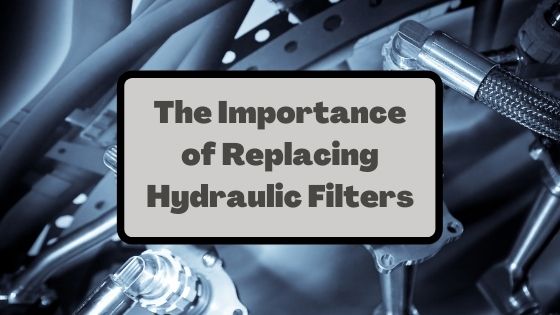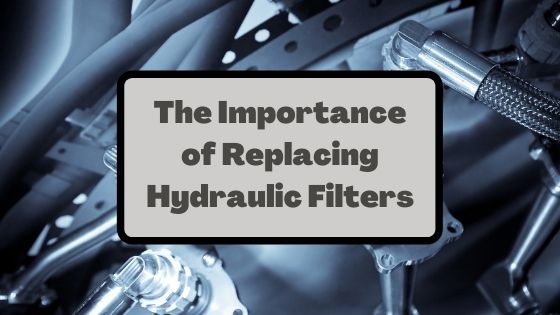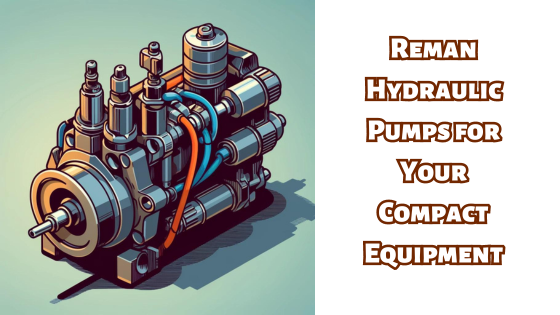The Importance of Replacing Hydraulic Filters
Posted by Dr. Sara McCaslin on Mar 1st 2022
How often do you replace your hydraulic filters?

Here are a few other Shop Talk blog posts you might be interested in:
- Why Bearings Are So Important to Your Final Drive
- Travel Drives Gone Wild
- Air Contamination and Spongy Hydraulics
Did you know that contaminated hydraulic fluid causes 70% to 80% of hydraulic failures? And hydraulic filters are often the only thing standing between contamination and severe damage to your hydraulic system. Filters can keep the contamination and damage localized, preventing a domino effect that causes damage to cascade through your system. But having filters in place isn’t enough -- they need to be periodically replaced, as well.
Types of Hydraulic Filters Found on Compact Equipment
There are three basic types of hydraulic filters you'll typically find on compact equipment:
- Screen filters
- Inline cartridge filters
- Spin-on filter
If you see a filter made of tightly woven wires, you’re looking at a screen filter. How tightly woven the wires are determines the size of particles that can be trapped in the filter. An example of where you might find one is on the suction strainer of the reservoir pump outlet. And these filters don’t just remove particles from your hydraulic fluid: they can also aid in removing air and water contamination.
Inline cartridge filters have a replaceable cartridge, and case drain filters fall into this category. These particular filters are found on both pressure and return lines but are more common on return lines. When used on return lines for cylinders, pumps, valves, and hydraulic motors, they are responsible for cleaning contaminated fluid before reaching the tank.
Spin-on filters have a much more complicated design than inline ones and are used to protect cylinders, pumps, valves, and hydraulic motors from contamination. They may be used in-line for low to medium pressure applications and are often used as suction filters. The filter element (e.g., stainless steel mesh, cellulose) is usually made from aluminum with a steel-made spin-on element.
What Happens When a Hydraulic Filter Gets Clogged
Three basic things can occur when a hydraulic filter gets clogged with contamination. First, fluid will bypass the filter if the filter has a bypass valve. If the filter does not have a bypass valve, then either the filter element will collapse, or pressure will build up upstream until it finds a way out. In the first two cases, the contaminations will continue on their path through your hydraulic system.
The third case is what happens when an inline case drain filter between your final drive motor and the hydraulic reservoir becomes clogged. The pressure builds in the final drive motor until something cracks or blows. It might be a seal or even the housing itself that splits open. And by the time this happens, the inside of your final drive motor is going to be seriously damaged -- and may possibly be beyond repair.
Replacing Your Hydraulic Filters
There are two different approaches to determining when to replace your hydraulic filters. The first is to follow manufacturer guidelines that indicate when to replace filters based on hours of operation. Another approach uses element condition indicators that show the pressure drop across a filter. When the pressure drop reaches some critical value, it’s time to replace the filter. This may not be practical for all the hydraulic filters on your compact equipment and require scheduled checks of the indicators.
Conclusion
Failing to replace a clogged filter can be worse than having no filter at all. And here at Final Drive Parts, we’ve had many final drives come in that were destroyed because of a clogged case drain filter. So if your machine has a case drain filter, we encourage you to replace it whenever you replace the other filters on your machine.








